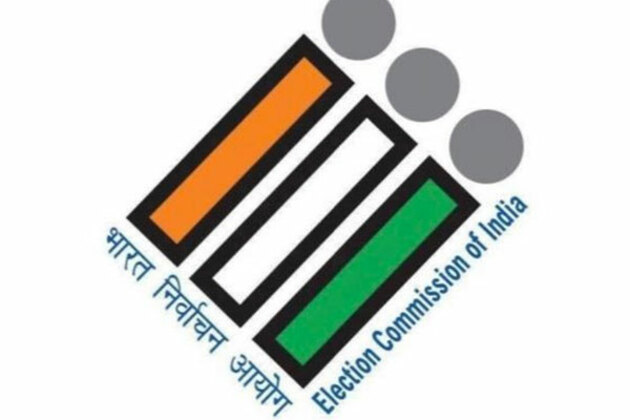Study: Heart attack/stroke, death risk can be lowered by dietary salt substitutes
ANI
15 Aug 2022, 00:33 GMT+10

Washington [US], August 14 (ANI): The findings of a recent study suggest that dietary salt substitutes lower the risk of heart attack, stroke and death from all causes and cardiovascular disease, finds a pooled data analysis of the available evidence.
The findings were published online in the journal Heart.
The beneficial effects of these substitutes are likely to apply to people all around the world, say the researchers.
Cardiovascular disease is the leading cause of death worldwide, and high blood pressure is a major risk for early death. A diet high in sodium and low in potassium is known to drive up blood pressure.
Around 1.28 billion people around the world have high blood pressure, although more than half of these are undiagnosed, say the researchers.
Salt substitutes, in which a proportion of sodium chloride (NaCl) is replaced with potassium chloride (KCl), are known to help lower blood pressure.
A recently published large study from China (Salt Substitute and Stroke Study; SSaSS) found that salt substitutes cut the risk of heart attacks, stroke, and early death, but it was unclear whether these benefits would apply to other parts of the world.
In a bid to shed light on this, the researchers trawled research databases looking for randomised clinical trials published up to the end of August 2021 and reporting on the effects of a salt substitute on blood pressure, cardiovascular health, and early death.
Blood pressure, which is measured in mmHg, is made up of two numbers: systolic--the higher number that indicates the force at which the heart pumps blood around the body; and diastolic--the lower number that indicates arterial pressure when the heart is filling with blood.
They pooled the results of 21 relevant international clinical trials involving nearly 30,000 people, carried out in Europe, the Western Pacific Region, the Americas, and South-East Asia.
The study periods lasted from 1 month to 5 years. The proportion of sodium chloride in the salt substitutes varied from 33 per cent to 75 per cent; the proportion of potassium ranged from 25 per cent to 65 per cent.
The pooled data analysis showed that salt substitutes lowered blood pressure in all the participants. The overall reduction in systolic blood pressure was 4.61 mm Hg and the overall reduction in diastolic blood pressure was 1.61 mmHg.
Reductions in blood pressure seemed to be consistent, irrespective of geography, age, sex, history of high blood pressure, weight (BMI), baseline blood pressure, and baseline levels of urinary sodium and potassium.
And each 10 per cent lower proportion of sodium chloride in the salt substitute was associated with a 1.53 mmHg greater fall in systolic blood pressure and a 0.95 mmHg greater fall in diastolic blood pressure. There was no evidence that higher dietary potassium was associated with any health harms.
A pooled data analysis of the results of five of these trials involving more than 24,000 participants showed that salt substitutes lowered the risks of early death from any cause by 11 per cent, from cardiovascular disease by 13 per cent, and the risks of heart attack or stroke by 11 per cent.
The researchers acknowledge certain limitations to their findings, including that the studies in the pooled data analysis varied in design and that there were relatively few data for people who didn't have high blood pressure.
But they nevertheless highlight that their findings echo those of the SSaSS, the largest ever trial of a potassium-enriched salt substitute to date.
"Since blood pressure lowering is the mechanism by which salt substitutes confer their cardiovascular protection, the observed consistent blood pressure reductions make a strong case for generalisability of the cardiovascular protective effect observed in the SSaSS both outside of China and beyond," they write.
"These findings are unlikely to reflect the play of chance and support the adoption of salt substitutes in clinical practice and public health policy as a strategy to reduce dietary sodium intake, increase dietary potassium intake, lower blood pressure and prevent major cardiovascular events," they conclude. (ANI) Share
Share
 Tweet
Tweet
 Share
Share
 Flip
Flip
 Email
Email
Watch latest videos
Subscribe and Follow
Get a daily dose of Beijing Bulletin news through our daily email, its complimentary and keeps you fully up to date with world and business news as well.
News RELEASES
Publish news of your business, community or sports group, personnel appointments, major event and more by submitting a news release to Beijing Bulletin.
More InformationTechnology
SectionHuawei targets Nvidia with new AI chip in tech showdown
BEIJING, China: China's Huawei Technologies is stepping up efforts to challenge U.S. dominance in artificial intelligence hardware,...
Singapore orders Meta to block foreign election posts
SINGAPORE: Singapore has ordered Facebook's parent company, Meta, to block Singaporeans from seeing posts made by three foreigners...
TikTok plans to launch TikTok Shop in Japan soon
TOKYO, Japan: TikTok is preparing to expand its e-commerce business into Japan, aiming to launch TikTok Shop in the country within...
ECI to launch unified digital platform ECINET to streamline electoral services
New Delhi [India], May 4 (ANI): In a significant step towards streamlining electoral services, the Election Commission of India (ECI)...
WAVES 2025: Experts call for unified action against piracy, blending technology, law, awareness
New Delhi [India], May 3 (ANI): A panel discussion on 'Piracy: Safeguarding Content through Technology' brought together global leaders...
SEWA participates in technology solutions conference in Berlin
BERLIN, 3rd May, 2025 (WAM) -- In line with its commitment to staying updated on the latest developments in information technology...
Business
SectionHong Kong home prices fall for fourth month despite stimulus
HONG KONG: Hong Kong's housing market continued to lose ground in March, with home prices falling for a fourth straight month despite...
China’s top airlines report deeper Q1 losses amid trade tensions
BEIJING, China: China's top airlines are still grounded in red ink, reporting steeper losses for the first quarter as they battle fierce...
GM recalls 720,000 vehicles over V8 engine defect
WASHINGTON, D.C.: General Motors is recalling more than 720,000 vehicles globally over a defect linked to its 6.2L V8 engines, the...
UPS to cut 20,000 jobs, close facilities amid Amazon slowdown
ATLANTA, Georgia: United Parcel Service is cutting 20,000 jobs and closing dozens of facilities, marking one of its biggest shakeups...
JERA to consider Alaska as a potential LNG supplier
TOKYO, Japan: Japan's biggest power company, JERA, says it might buy liquefied natural gas (LNG) from Alaska. This comes as Japanese...
U.S. stocks bounce higher on non-farm payrolls data
NEW YORK, New York - A better-than-expected jobs report boosted U.S. stock markets Friday. Total nonfarm payroll employment increased...













